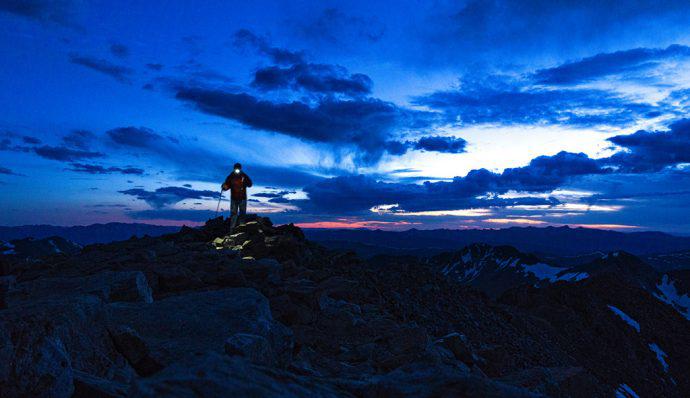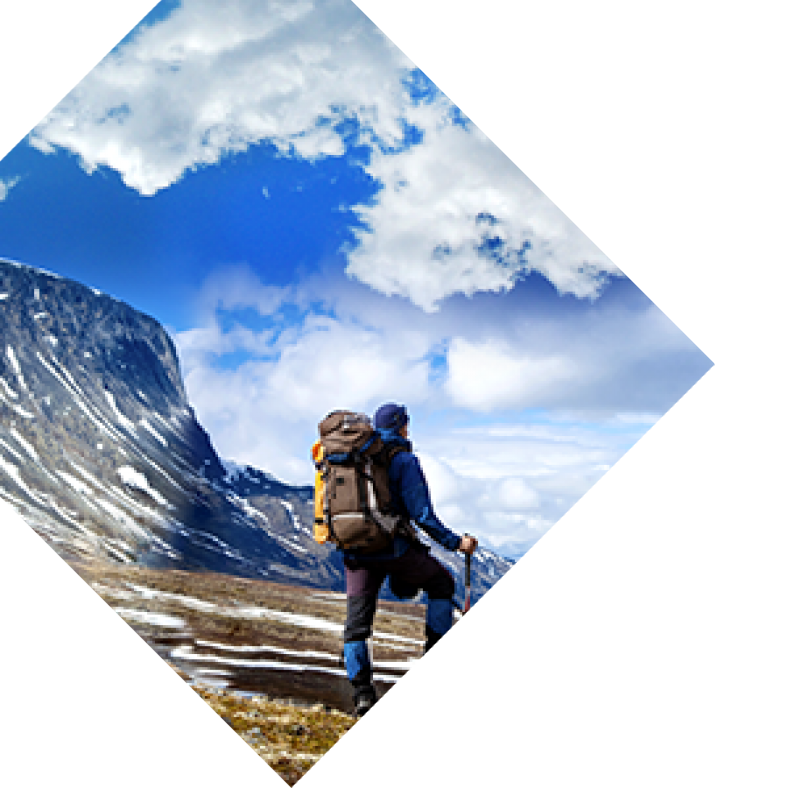Looking for a brand new experience on the same tried and true trails? Enter the night hike. With the new approach, possible animal sightings, and general feel of a night hike, come new safety precautions and concerns. But like most other outdoor adventures, a little education and preparation go a long way in helping you maintain hiking safety at night.

Below are 10 do’s and dont’s to remember as you plan for your next night hike.
1. Don’t: Try a new trail
Night is not the time to start an adventure in new lands. You’ll want to travel a trail you know pretty well to help you stay safe and know what to expect. Seeing your favorite trail under the light of just the moon may offer a whole new experience to enjoy. Once you’re ready to branch out, traverse new trail options a few times during the day before heading out at night.
2. Do: Know your gear
Just like you shouldn’t try a new trail once the sun goes down, you shouldn’t use brand-new equipment either. Make sure you know the ins and outs of your packed items in case you need quick access to your hiking gear.
3. Don’t: Venture off the designated trail
This is for two main reasons: to protect the natural environment and to protect you. Leave No Trace principles advise hikers to walk single file in the middle of the trail and to use existing trails and campsites. Sticking to the pre-existing trail helps to maintain the integrity of the space you’ve come to enjoy. And for obvious reasons, staying on the trail when night hiking (and also when day hiking) can prevent you from ending up in a dangerous situation.
4. Do: Always tell someone of your plans
Even the most experienced hikers can find themselves in danger or in need of help. Telling a friend or family member your intended trail, departure time, and when you expect to return can help get you assistance faster in the unfortunate event you need it. Do give yourself a buffer, as you might find your pace at night much slower than day hiking.
5. Don’t: Hike alone
Hiking in a group is a good idea for enhancing safety at night. The more people you keep around, the more gear you’ll have access to, in case of emergency. Some cities and communities have organized group night hikes. Check with your local REI store, state park, and hiking clubs to see if there are any in your area.
6. Do: Bring plenty of lights
Come prepared for a night hike with a headlamp, preferably one with a red light option to protect your night vision. Also plan to bring along a lighter and tinder, just in case. While you should plan to bring ample lighting you should also plan to...
7. Do: Embrace the darkness
This is why you’re on a night hike, isn’t it? Your eyes may take 30-45 minutes to get acclimated to the darkness, and once they are, any light can disrupt that acclimation. Try to start your hike without the assistance of your headlamp and let your eyes get adjusted to the darkness.
8. Don’t: Disrupt wildlife
You wouldn’t want someone to come into your bedroom and flash a camera or bright headlamp at you, right? Be mindful and admire the nighttime animals from a dark and respectful distance; don’t disrupt their livelihood. And be hyperaware of your surroundings, as wildlife can be more active at night. Slow down and pay close attention to your surroundings to keep yourself and the animals safe.
9. Do: Plan hike around weather conditions and moon’s cycle
Planning a hike around the lunar cycle can help get you maximum visibility out in the wild. But always remember to check local weather conditions as well. Clouds or fog could move in, decreasing your light, as well as the temperatures. Always remember that while it may have been a comfortable day, a night hike will likely bring cooler temperatures, so dress accordingly.
10. Do: Pack the usual necessities and then some
It may be dark and cooler on a night hike, but you still need to hydrate. Bring along enough snacks and water for the duration of your hike and a bit extra just in case. Pack an extra layer or jacket for the cooler temperatures as well as extra batteries for your light sources. Depending on the trail’s terrain, consider hiking with trekking poles to help with stability.
When heading out for a night hike, put safety first. Be prepared, stay attentive, and always respect your surroundings. And have fun; enjoy the sounds and sights of your favorite trail at night!


